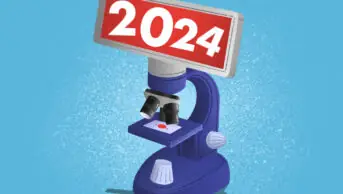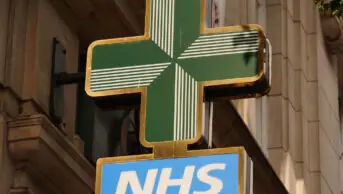
Shutterstock.com
The number of antidepressants prescribed in England to children and young people under the age of 18 has rocketed by 12% in 12 months, according to official figures obtained via a Freedom of Information (FOI) Act request.
The statistics revealed that 166,510 under-18s, including 10,595 7-to-12-year-olds and 537 aged six or younger, were prescribed medication typically used to treat depression and anxiety between April 2015 and June 2016, according to The Guardian, which made the FOI request.
The figures were based on primary care prescribing statistics between June 2015 and June 2016 held by the NHS Business Authority.
Guidance from the National Institute for Health and Care Excellence (NICE), England’s health technology assessment body, states that teenagers and children with moderate or severe depression should be prescribed an antidepressant only if it is in conjunction with psychotherapy or where psychotherapy has failed. The guidance adds that fluoxetine should be prescribed to under-18s as it is the only antidepressant for which clinical trial evidence has shown that the benefits outweight the risks.

Source: Courtesy Mental Health Foundation
Antonis Kousoulis, assistant director at the Mental Health Foundation, a UK charity, says: “GPs overprescribe antidepressants often because of the long waiting lists for specialist services”
However, some experts have suggested that some young people are being treated with antidepressants because the wait for psychotherapy appointments is so long.
Dr Antonis Kousoulis, clinician and assistant director at UK charity the Mental Health Foundation says: “GPs overprescribe antidepressants often because of the long waiting lists for specialist services. But the evidence that these medicines are effective in children is not as comprehensive as it is for drugs for other conditions.”
But Helen Stokes-Lampard, chair of the Royal College of GPs, says that while waiting times for mental health services for children and young people in the community are too long in some areas of the country, “GPs would not just prescribe them antidepressants in the meantime, if it was not in the best interests of the patient’s long term health and wellbeing.
“Initiating prescribing antidepressants in young people usually starts in child and adolescent health clinics. But GPs are highly trained to prescribe medication to their patients of all ages, taking into account the unique physical, psychological and social factors that might be affecting the health of the patient sat in front of them, and in conversation with that patient. We would not issue a prescription if we did not think it was necessary.
“NHS England’s ‘GP forward view’ pledged for every GP practice to have access to one of 3,000 new mental health therapists. We need this, and its other promises — including £2.4bn extra a year for general practice and 5,000 more GPs — to be delivered as a matter of urgency, so that we can continue to provide the best possible mental health care to our young patients.”
Norman Lamb, health spokersperson for the Liberal Democrat Party, who has long campaigned on mental health issues, says: “Children’s mental health services are in desperate need of more resources. The Conservative government has failed to invest properly and has failed to make good on the funding promises we made in the coalition. Money isn’t getting through to the front line and now we are seeing the consequences of this neglect.”


